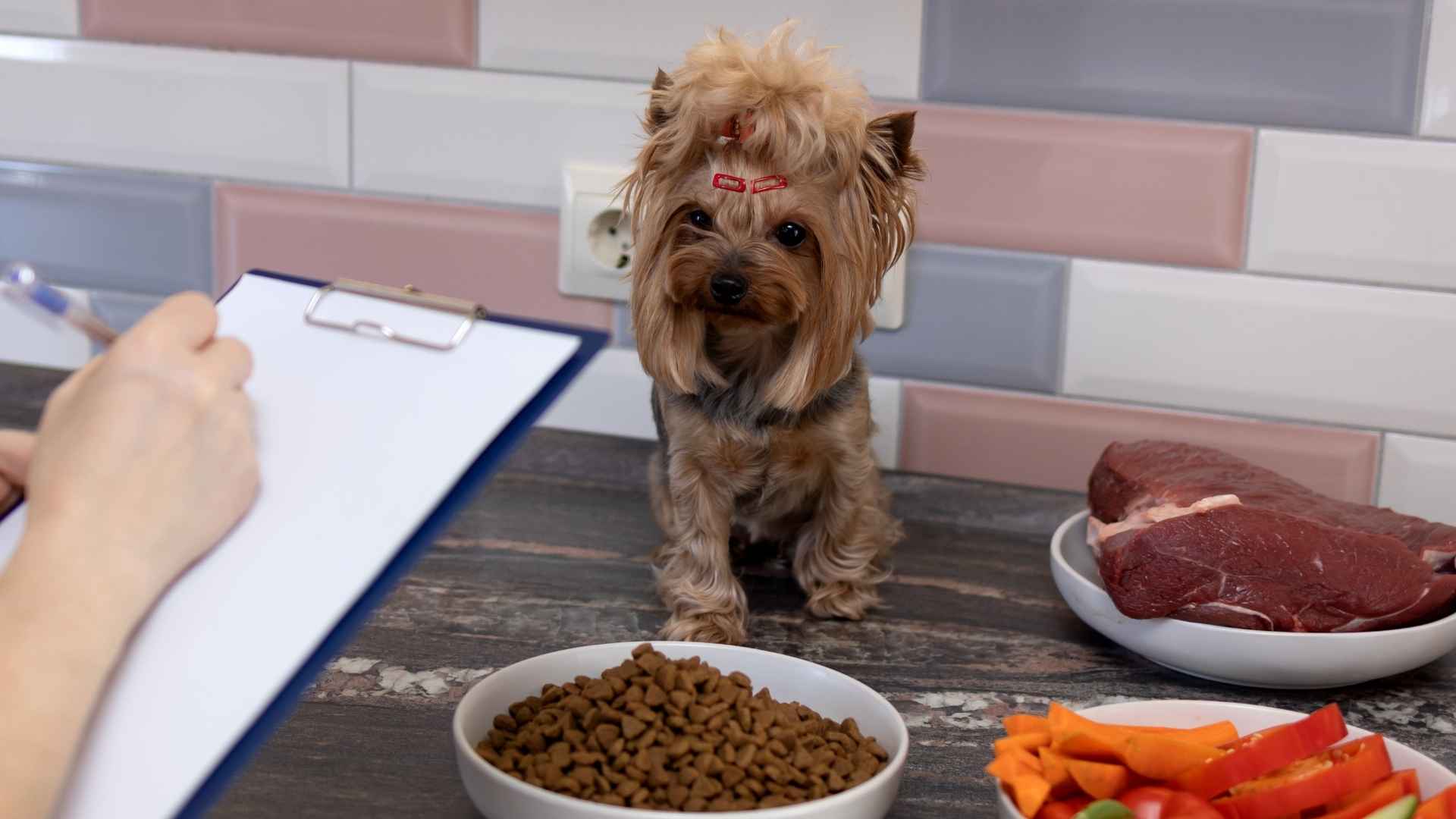Just like people, dogs have their own unique food preferences, and some are surprisingly selective when it comes to mealtime. While many pups will devour anything in sight, others turn their noses up at even the most premium kibble or gourmet treats. This finicky behavior can be influenced by breed-specific traits, temperament, or even past experiences, making mealtime a challenge for their owners.
Certain dog breeds are especially known for their picky eating habits, often requiring more attention when it comes to diet, flavor, and food presentation. Whether it’s a preference for specific textures or the need for variety to stay interested, these dogs demand a bit more creativity and patience from their humans. For prospective or current dog parents, understanding which breeds tend to be fussier about food can help avoid frustration and ensure a balanced, nutritious diet.
In this article, we’ll explore the top dog breeds that are notoriously picky eaters and provide tips to keep them healthy, satisfied, and excited for every meal.
Pickiest Eating Dog Breeds
1. Yorkshire Terrier

When it comes to picky eating, few dogs can rival the Yorkshire Terrier. This tiny breed, known for its bold personality and silky coat, often has a refined palate that can make mealtimes a challenge. The AKC notes that underneath the elegant, shiny, floor-length coat of the Yorkshire Terrier lies the bold spirit of a classic terrier.
Their small size means they don’t need much food, but what they do eat must be packed with nutrients to support their high energy levels. Yorkies frequently develop preferences for specific flavors, textures, or even temperatures, turning away from foods they don’t find appealing.
Nutrition and Care
Yorkshire Terriers thrive on a high-quality diet rich in protein, ideally including sources like chicken or beef, and may need up to 22% protein in adult formulas. Their sensitive stomachs and potential for food allergies mean that owners must avoid overly processed foods, opting instead for clean, meat-based snacks.
Dental health is also a concern for this breed, making daily tooth brushing important. Fresh water, portion control, and veterinarian-approved diets are crucial to keeping your Yorkie healthy and satisfied.
Fun Fact: Yorkies are among the pickiest eaters in the dog world, largely due to their sensitive digestive systems and selective taste preferences.
2. Cavalier King Charles Spaniel

Graceful and affectionate, the Cavalier King Charles Spaniel is adored for its charming personality and luxurious coat. Britannica states that the Cavalier King Charles Spaniel is a highly popular breed, known for its affectionate, gentle, and kind temperament. However, behind those soulful eyes can lie a surprisingly selective eater.
While not as notoriously picky as some breeds, Cavaliers often show a preference for specific textures or flavors, and some may even refuse food unless it’s hand-fed. Their delicate digestion and occasional dental sensitivity can contribute to these finicky habits, requiring attentive meal planning from their owners.
Nutrition and Care
These affectionate dogs thrive on high-quality kibble that includes balanced vitamins and minerals. They tend to enjoy meaty flavors, but their systems are sensitive to spicy foods and artificial additives. Since this breed is prone to weight gain and heart-related conditions like mitral valve disease, it’s crucial to monitor portion sizes and choose weight-control formulas when needed.
Dental issues may also influence their eating preferences, so regular oral care is essential. Some Cavaliers may benefit from a mix of wet and dry food to encourage consistent eating.
Fun Fact: Though not extreme in their pickiness, Cavaliers may become so selective that they prefer eating only when hand-fed, especially if they’ve developed sensitivities to certain ingredients or textures.
3. Maltese

The Maltese is a graceful, affectionate toy breed known for its beautiful white coat and dainty frame, but also for its notoriously selective palate. Hill’s Pet reports that the Maltese is a small-sized dog, typically weighing between four and six pounds.
These little dogs often turn mealtime into a guessing game, refusing food that doesn’t meet their high standards for texture, taste, or smell. Their picky habits are often linked to their small size and delicate digestion, which require careful attention from their owners to avoid gastrointestinal distress.
Nutrition and Care
Feeding a Maltese requires precision and patience. Their tiny mouths are better suited for small kibble sizes, and they often reject food that’s too large or hard to chew. A diet rich in lean proteins like chicken and easily digestible grains such as rice works best.
Maltese dogs are also sensitive to ingredients like wheat, artificial dyes, and preservatives, which can upset their stomach and trigger conditions like pancreatitis. Clean, fresh water should always be available, and any dietary changes should be approved by a veterinarian, especially if considering homemade meals.
Fun Fact: These small dogs often reject foods that don’t appeal to their sensitive sense of smell or taste, making them one of the most finicky eaters among small breeds.
4. Chihuahua

Tiny but full of attitude, the Chihuahua is one of the most notoriously picky eaters in the dog world. Petplan notes that Chihuahuas, the smallest dogs in the world, are excellent companion pets. With their compact size and high energy levels, these little dogs require food that is both nutrient-dense and easy to digest.
However, many Chihuahuas are quick to turn their noses up at certain flavors, textures, or even kibble sizes. Their tendency to develop strong preferences and their ability to charm owners into offering human food can make mealtimes a challenge.
Nutrition and Care
Chihuahuas thrive on high-quality diets tailored to their age and energy needs. Their sensitive digestive systems mean ingredients like corn and soy should be avoided, while easily digestible proteins are preferred.
Since they’re prone to weight gain, it’s crucial to monitor portion sizes and limit treats. Many Chihuahuas also respond well to probiotic supplements or chews that aid digestion and make meals more enticing. Avoiding excessive table scraps helps prevent nutritional imbalances.
Fun Fact: Chihuahuas are often picky not just about food type but also kibble size, flavor, and texture, making them a true culinary critic in a compact frame.
5. Shih Tzu

With their long flowing coats and wide, expressive eyes, Shih Tzus are as charming as they are particular, especially when it comes to mealtime. These tiny companions are famously fussy eaters, often turning their noses up at food that doesn’t meet their expectations in flavor, freshness, or texture.
Their sensitive stomachs add another layer of complexity, making it essential for owners to carefully choose what goes into their food bowls.
Nutrition and Care
Shih Tzus require a protein-rich, balanced diet tailored to their age and any health concerns. High-quality commercial food or vet-approved homemade meals work best, but it’s crucial to avoid ingredients like garlic or onion, which can be toxic.
Foods with strong flavors may upset their digestion, so bland, easily digestible meals are often more suitable. Feeding them twice daily and limiting treats to no more than 10% of their total intake can help prevent weight gain. Fresh, clean water should always be available, and human food should be avoided to discourage bad habits.
Fun Fact: Shih Tzus are so selective about their meals that they may refuse to eat if the food isn’t fresh or if they develop a preference for table scraps.
6. Poodle

Whether you own a Toy, Miniature, or Standard Poodle, you may find that your pup quickly tires of repetitive meals or turns away from certain textures or flavors. This breed often thrives on variety, and many Poodle owners have to rotate between high-quality kibble, wet food, or even fresh-cooked meals to maintain interest and nutritional balance.
Their selective eating habits can be frustrating, but they’re often linked to their refined senses and sensitive digestion.
Nutrition and Care
To keep a Poodle happy and healthy, a nutrient-rich, balanced diet tailored to their size and energy level is key. Owners should monitor their Poodle’s calorie intake closely, as this breed is prone to weight gain.
It’s also important to offer dog treats in moderation and avoid fatty table scraps, which can upset their stomach. Consulting a vet for tailored dietary recommendations is highly encouraged. Additionally, if feeding whole-food meals, ensure they meet all nutritional requirements.
Fun Fact: Poodles often lose interest in meals if not offered variety, making them one of the most diet-sensitive and discerning breeds in the dog world.
7. Boston Terrier

Boston Terriers, known for their signature tuxedo-like coats and cheerful personalities. Despite their small size, they often have strong opinions about what lands in their food bowls. Many Boston Terriers experience digestive sensitivities that lead to selective eating, turning away from foods that don’t sit well with their stomachs or appeal to their taste buds. Some may even refuse to eat unless encouraged or offered a variety of options, which can be frustrating for even experienced dog owners.
Nutrition and Care
Due to their sensitive digestion and small size, Boston Terriers benefit from specially formulated small-breed diets. These foods feature smaller kibble sizes for easier chewing and contain balanced nutrients tailored to their fast metabolism.
It may take trial and error to find a high-quality food that your Boston enjoys. Adding a bit of fresh, vet-approved food can help make meals more enticing. Because of their short snouts, it’s important to monitor their eating habits and consult your vet to avoid related health issues.
Fun Fact: Boston Terriers are naturally bobtailed and often need encouragement or variety to engage with their dog food, making them surprisingly fussy eaters for such a hardy breed.
Conclusion
When it comes to mealtime, not all pups are eager eaters. As we’ve seen with breeds like the Yorkshire Terrier and Boston Terrier, some dogs are notably particular about what’s in their bowls. Whether it’s due to sensitive digestion, strong flavor preferences, or a fastidious nature, picky dogs often require more thoughtful planning to maintain a healthy, balanced diet. Understanding your dog’s eating habits is key to ensuring they get the nutrition they need without turning every meal into a struggle.
If your pup refuses to eat regularly or seems disinterested in their own food, you’re not alone, many small and sensitive breeds display these tendencies. The good news is that with a little patience and the right approach, such as offering high-quality ingredients, small-breed formulations, or adding healthy, vet-approved toppers, you can keep even the fussiest eater satisfied. Recognizing breed-specific needs will help you better support your dog’s appetite, health, and overall happiness at mealtime.


